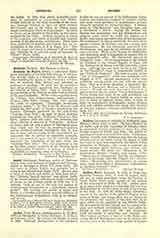

Andrada de Payva, DIEGO, a celebrated Portuguese theologian of the sixteenth century, b. at Coimbra, July 26, 1528; d. December 1, 1575, at Lisbon. After finishing his course at the University of Coimbra, he received Holy Orders, and remained as professor of theology. So great was his reputation that King Sebastian appointed him theologian at the Council of Trent, 1561. Here he merited the special thanks of the Pope by an able work in defense of the papal authority. While at the council he wrote his “Decem libri orthodoxarum explicationum” (Venice, 1564, 1594; Cologne, 1564, 1574) against the work of Chemnitz, “Theologise Jesuitarum pnecipua capita”. In this book he discusses and defines the chief points of doctrine attacked by the heretics. Chemnitz answered by his well-known “Examen Conc. Trid.”, in reply to which Andrada produced his best work, “Defensio Tridentinm fidei Cath.” (Lisbon, 1578 and 1595). He published also three volumes of sermons in Portuguese. Andrada de Payva had not only a grasp of theological questions which won for him an important position among sixteenth-century theologians, but he was also so clear and convincing in the exposition of his arguments that he proved an admirable apologist, and it was matter of regret that his untimely death prevented the completion of his great work, the “Defensio Trid. fidei.” This had progressed as far as the fifth session, inclusive of the doctrine upon the Immaculate Conception in defense of which it marshalled an imposing array of authorities.
ARTHUR J. MCCAFFRAY

